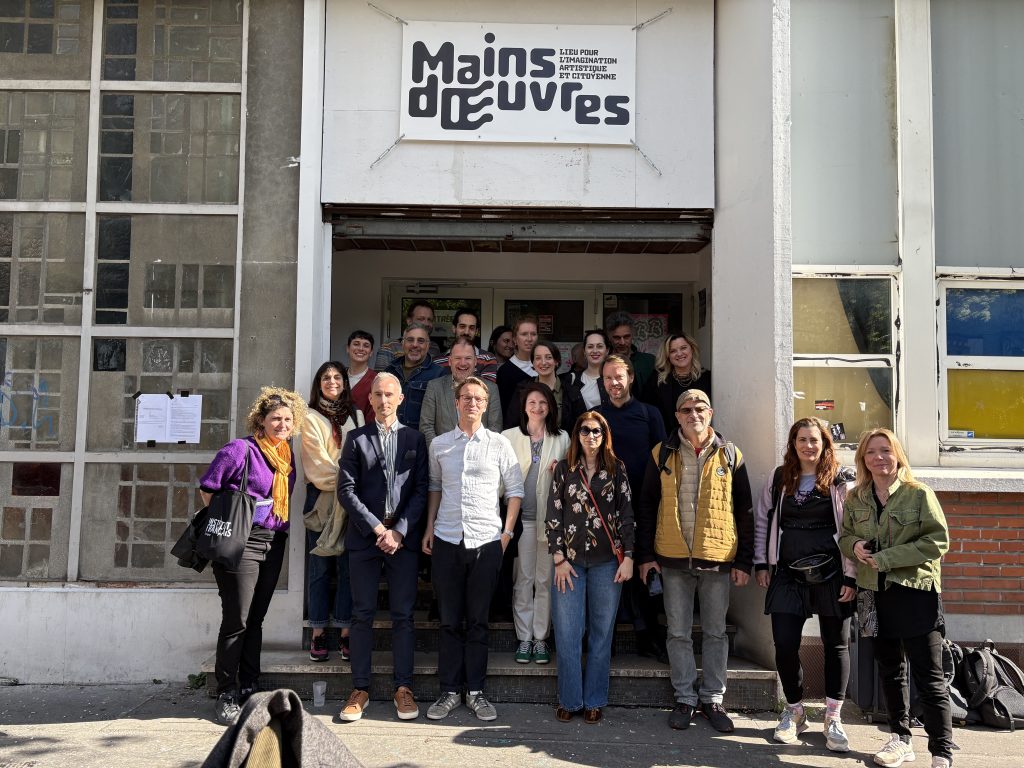ABOUT CO-PED
By helping Social and Cultural Centres in strengthening the role of local communities in the energy transition, Co-PED aims to enhance collaboration between energy producers and consumers, encourage community participation, and support democratic decision-making and social inclusion.
OUR PARTNERS
The project is coordinated by Trans Europe Halles (TEH), an international network of 170 community-led cultural centres in 40+ countries. The eight Urban Living Labs (ULLs) are centered around the TEH members La Friche la Belle de Mai (Marseille), Bakelit Multi Art Center (Budapest), BASIS Vinschgau Venosta (South Tyrol), Ifö Center (Bromölla), Die Bäckerei – Kulturbackstube (Innsbruck), and Green Kommon (Paris) as well as two projects on a neighbourhood scale Bartók District (Budapest) and Hart van Zuid (Rotterdam).
Research activities will be carried out by Rotterdam University of Applied Sciences (Netherlands), Research Institute of Sweden, RISE (Sweden), and Eutropian Association (Italy), with profound expertise in urban regeneration and development, cultural and creative industries as well as policy and legal research.
URBAN LIVING LABS
These urban living labs are centered around a diverse set of pilot projects, in different urban, peri-urban as well as rural settings. The goal is to investigate practical and scalable solutions on how social and cultural centers with a strong focus on community engagement are able to function as catalysts for positive energy districts and a just energy transition that includes local communities.
RESEARCH, SOLUTIONS AND TOOLS
These urban living labs are centered around a diverse set of pilot projects, in different urban, peri-urban as well as rural settings. The goal is to investigate practical and scalable solutions on how social and cultural centers with a strong focus on community engagement are able to function as catalysts for positive energy districts and a just energy transition that includes local communities.

NEWS
Co-PED is funded by the Driving Urban Transitions programme within the Positive Energy Districts Transition Pathway. The DUT Partnership boosts urban transitions through its three thematic priorities – the Transition Pathways. The Positive Energy Districts Transition Pathway (PED TP) aims to develop innovative solutions for planning, large-scale implementation, and replication of PEDs across Europe. PEDs are energy-efficient and energy-flexible urban areas that generate net zero emissions while managing renewable energy. The mission is to initialise 100 PEDs in Europe by 2025 and contribute to the Mission on Climate-neutral and Smart Cities with an innovation portfolio of PED solutions until 2030.
Co-PED investigates the potential of social and cultural centers as catalysts for positive energy districts, nurturing a just energy transition that includes local communities.
Co-PED aims to promote inclusive and equitable participation in energy and cultural initiatives, positioning community-led cultural spaces as laboratories for just and equitable Positive Energy Districts. Our Gender, Diversity and Inclusion Policy sets out the principles behind this commitment.
Transfer and dissemination formats tailored to various stakeholder groups including policy roundtables.
Community of practice supporting the practical implementation of the project outcomes.
Policy Briefs at the intersection of cultural, real estate, urban development, and energy policies.
Strategic Guidelines for municipalities on the implementation of energy communities.
Capacity Building and Training Program for policymakers and civil society, promoting energy justice.
Structuring Study for a European cooperative company, including articles of association and relevant legislation.